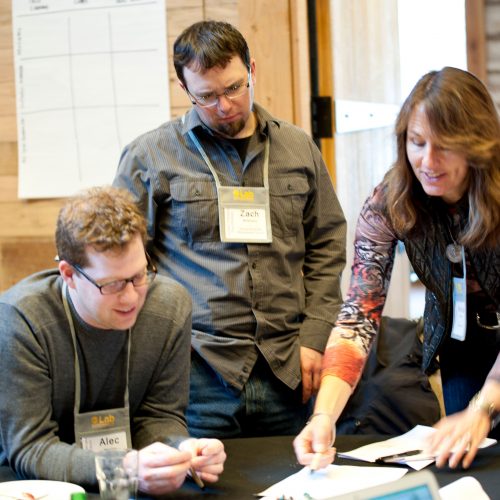
eLab Accelerator 2018
Portfolio Power Plants
During a lovely sunset high tension power lines run across the rural landscape bringing electrical power to the area.

Project Objective
Develop a framework that can be used by utilities and stakeholders in planning for new energy and capacity to come from a portfolio of power plants consisting of wind, solar, storage, and demand response.

Team Members
- Ric O’Connell, GridLab, Executive Director
- Jeremy Fisher, Sierra Club, Senior Strategy and Technical Advisor
- Hunter Hydas, TVA, IRP Project Manager
- Audrey Lee, SunRun, Vice President, Grid Services
- Sergio Islas, SCE, Preferred Resources Pilot Manager
- Ray Hohenstein, Fluence, Market Applications Director
Project Description
Clean energy resources have the potential to become a viable alternative for new peaking capacity, as seen in recent events such as NRG’s request to suspend its application for the 262 MW Puente gas plant in California. However, the industry lacks a framework to replace traditional power plants with portfolios of alternative clean power plants (PPP), mainly wind, solar, demand response, energy efficiency, and energy storage. There are 162 GW of new natural gas plants planned, most slated to replace retiring coal. These new plants would “lock in” nearly 300 MTCO2 per year for decades, and may also lead to over-reliance on natural gas. While renewables, demand response, and storage are starting to be considered by utilities in their planning processes, there are no clear guidelines on how to assemble a portfolio of utility scale and behind the meter clean energy and storage. We want to build a prototype framework that can be used by utilities and others in planning for the new energy and capacity that would come from these portfolio power plants.
Progress Made to Date (pre-Accelerator
RMI has been working on a closely related clean portfolio/virtual power plant project for several months and has now released a new report The Economics of Clean Energy Portfolios. GridLab and Sierra Club have held several scoping meetings on this topic to understand critical needs and do initial work to select a pilot project. Other team members have either been working on pilot projects, or actively exploring and advancing PPP related efforts in the industry. We expect to be able to make rapid progress given the level of preparedness of the team members.
Project Background Information
Forthcoming RMI Clean Portfolios Paper
Accelerator Outcomes
Team members have taken diverse learnings back to their respective organizations, from incorporating new training on the portfolio power plants framework and evaluating procurement best practices, to working to design changes within utility planning processes to better incorporate consideration of portfolio power plants alongside traditional resources. They will also be exchanging knowledge with other organizations pursuing similar projects, such as Glendale Water and Power, which is pursuing non-traditional options in place of a proposed gas plant.
